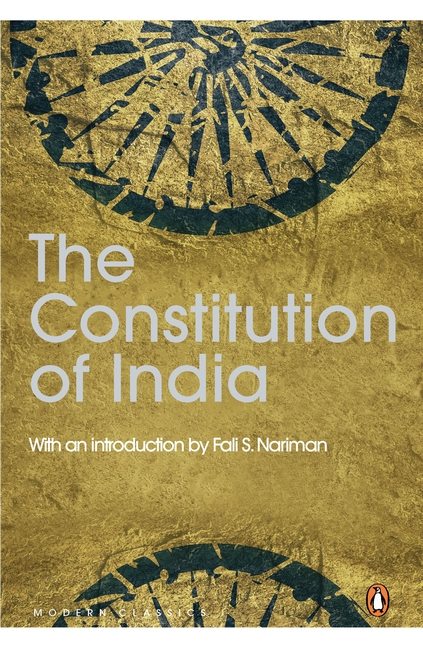
© 2020 Penguin India

On 26th January 1950, the Republic of India came into being with the adoption of a newly written constitution that laid down the supreme law of the land. One of the world’s longest and most important political texts, The Constitution of India signalled the arrival of the world largest democracy.
The foremost document of the newly independent nation, the Constitution laid down the framework for governance, demarcating political code, powers, and duties of government institutions and granting fundamental rights, directive principles, and the duties to the citizens. At its enactment, it had 395 articles in 22 parts and 8 schedules and it has been amended 104 times in the seventy years of its being. With a comprehensive introduction by Fali S. Nariman, this classic edition accessibly presents independent India’s most important text.
Imprint: India Penguin Modern Classics
Published: Jan/2021
ISBN: 9780143452690
Length : 464 Pages
MRP : ₹699.00
Imprint: Penguin Audio
Published:
ISBN:
Imprint: India Penguin Modern Classics
Published: Jan/2021
ISBN:
Length : 464 Pages
MRP : ₹699.00
On 26th January 1950, the Republic of India came into being with the adoption of a newly written constitution that laid down the supreme law of the land. One of the world’s longest and most important political texts, The Constitution of India signalled the arrival of the world largest democracy.
The foremost document of the newly independent nation, the Constitution laid down the framework for governance, demarcating political code, powers, and duties of government institutions and granting fundamental rights, directive principles, and the duties to the citizens. At its enactment, it had 395 articles in 22 parts and 8 schedules and it has been amended 104 times in the seventy years of its being. With a comprehensive introduction by Fali S. Nariman, this classic edition accessibly presents independent India’s most important text.
Fali S. Nariman is a senior advocate, Supreme Court of India. He was appointed chairman of the executive committee of the International Commission of Jurists (ICJ), Geneva, from 1995 to 1997. He was appointed a member of the London Court of International Arbitration (LCIA) from 1988 to 2003. He was a member of the ICC International Court of Arbitration, Paris, and later, its vice-president for a continuous period of over fifteen years from 1989 to 2005. He was inducted as a member of the London Court of International Arbitration (LCIA) from 1988 to 2003. He was elected president of the International Council for Commercial Arbitration (ICCA) from 1994 to 2002, and has, since then, been designated its honorary president. He was awarded the Padma Bhushan in January 1991, for recognition of ‘distinguished services in the field of jurisprudence’, and the Padma Vibhushan (India’s second highest civilian award) in January 2007, for recognition of ‘exceptional and distinguished services in the field of public affairs’. He has actively served as a nominated member of the Upper House of India’s Parliament from 1999 to 2005.
This Republic Day, join us for a thoughtful exploration through books unveiling India’s rich history. From tales of strength to political insights, we’re delving into stories that define our nation. Get ready for a reflective reading journey as we celebrate the essence of Republic Day. Let The Ultimate Bharat Book Binge begin! The first decade […]
